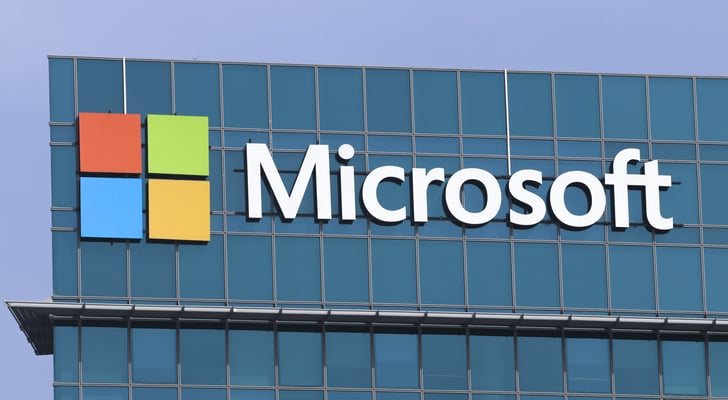Microsoft (NASDAQ:MSFT) announced Sept. 18 that it was raising the quarterly dividend it pays Microsoft stock shareholders by 4 cents or 9.5% to 46 cents per share.
Great news, right?
Apparently, in the minds of some dividend investors, Microsoft’s increase was a little chintzy for such a cash-rich business.
“While Microsoft announced a dividend raise of nearly 10% on Tuesday, there’s a case to be made that it was a disappointment,” wrote Seeking Alpha contributor Bill Maurer. “With tons of free cash flow, less money also is being spent on the buyback than in recent years, so with shares at all-time highs, there’s a case to be made for more dividends.”
Read the comments that follow Maurer’s piece and you’ll notice there’s a fair bit of discontent among Microsoft shareholders.
Are Satya Nadella and the board cheap when it comes to the company’s capital allocation? I don’t think so. Here are three reasons why.
1. The Dividend Itself
Since 2010, Microsoft has raised its quarterly dividend by 30 cents from 13 cents at the end of 2009 to its next payout of 46 cents in December.
That’s an annualized increase of 15.1%, almost double the current S&P 500 dividend growth rate of 8%. Its so-called “chintzy” increase of 9.5% is 150 basis points clear of the index.
I can remember a time when investors didn’t want a growth stock to pay dividends because it suggested the company had run out of growth levers.
In my opinion, a 1.6% yield for Microsoft stock is plenty given it’s averaged an annualized total return of 29% over the past five years and 17% over the past ten.
What more can you ask from a stock?
2. Buyback Cutback
Maurer believes that Microsoft should cut its annual share repurchases to $5 billion, diverting those funds into a larger quarterly dividend.
He reasons that, because share repurchases barely make a dent in the share count given how many the company issues in compensation (combined with the fact that its shares are at all-time highs), dividends are the obvious choice for its free cash flow capital allocation.
Now, I’m the first to agree that a company should not be buying back its stock when it’s trading at all-time highs, but to commit the company to higher dividend payouts on a permanent basis — dividends are like crack cocaine to income investors; they can’t get enough — puts the company in a financial straightjacket that’s nearly impossible to get out of without seriously damaging the stock price.
The one thing that CEOs covet more than anything is financial flexibility. Dividends lock you in; share repurchases allow you to return capital to shareholders without a permanent commitment.
That’s a big deal if another $30 billion acquisition comes along.
3. What About Debt Repayment?
Microsoft had $62 billion of net cash at the end of June made up of $134 billion in cash and short-term investments less $72 billion in long-term debt.
Should a company that generates $32 billion in free cash flow annually and only pays out $13 billion in dividends, have any debt, let alone $72 billion?
I don’t think so.
As interest rates continue to rise, the $2.2 billion it spends on interest payments annually, will also increase. Eliminating the debt would provide interest savings that could be diverted to dividend increases — but I wouldn’t suggest it do so until eliminating the entire debt.
There’s that idea of financial flexibility again.
The Bottom Line on Microsoft Stock
Frankly, as someone commented in Maurer’s article, if you’re not happy with a 9.5% increase in the dividend, perhaps Microsoft isn’t the stock for you.
Microsoft is a growth stock again. It should act like it.
As of this writing Will Ashworth did not hold a position in any of the aforementioned securities.

